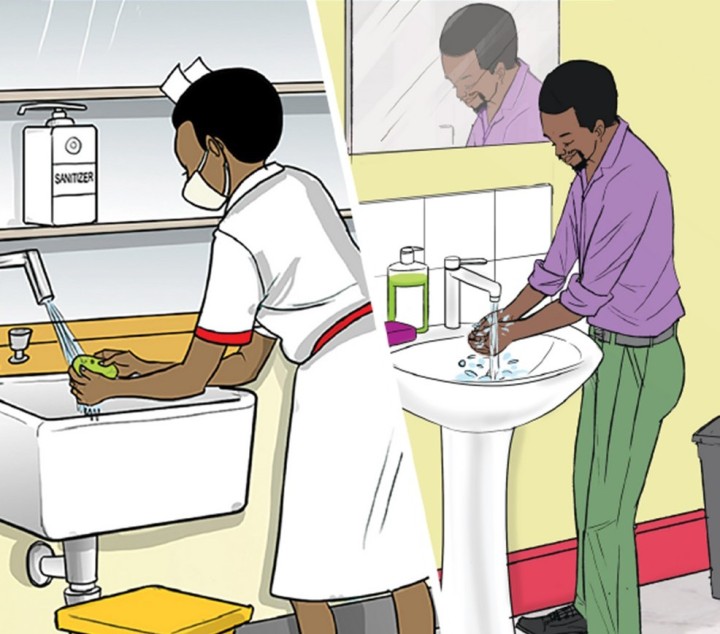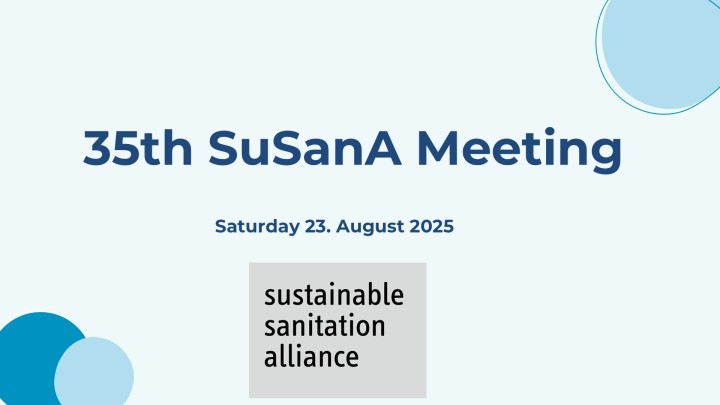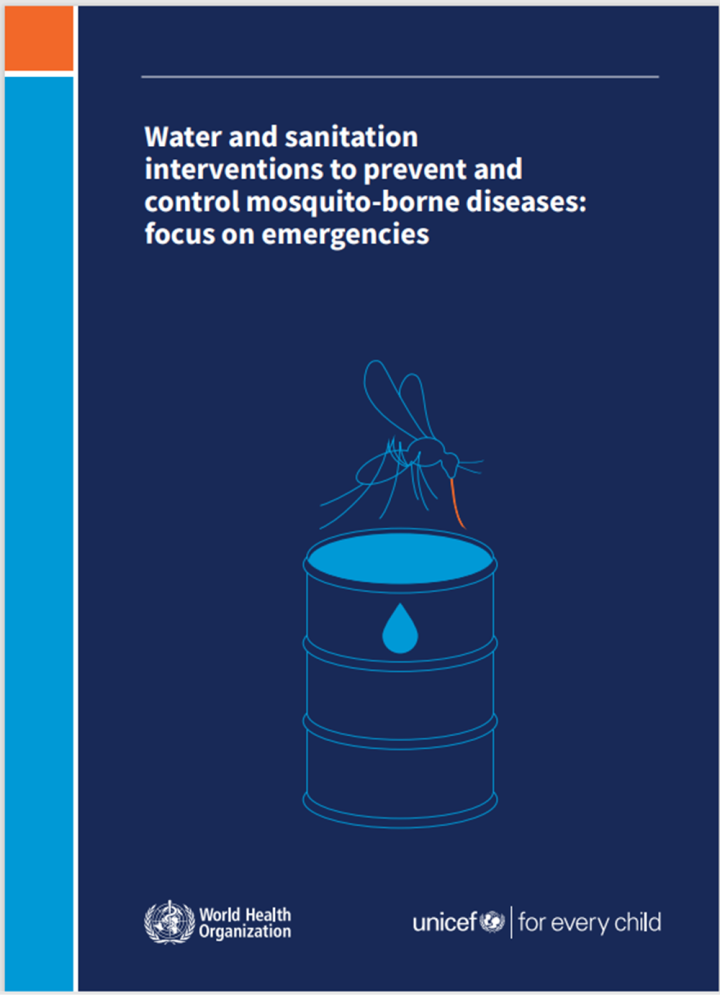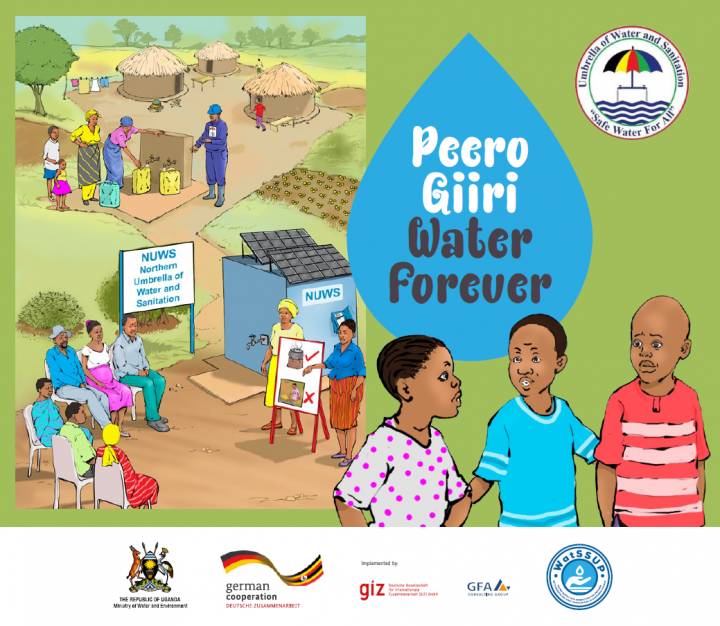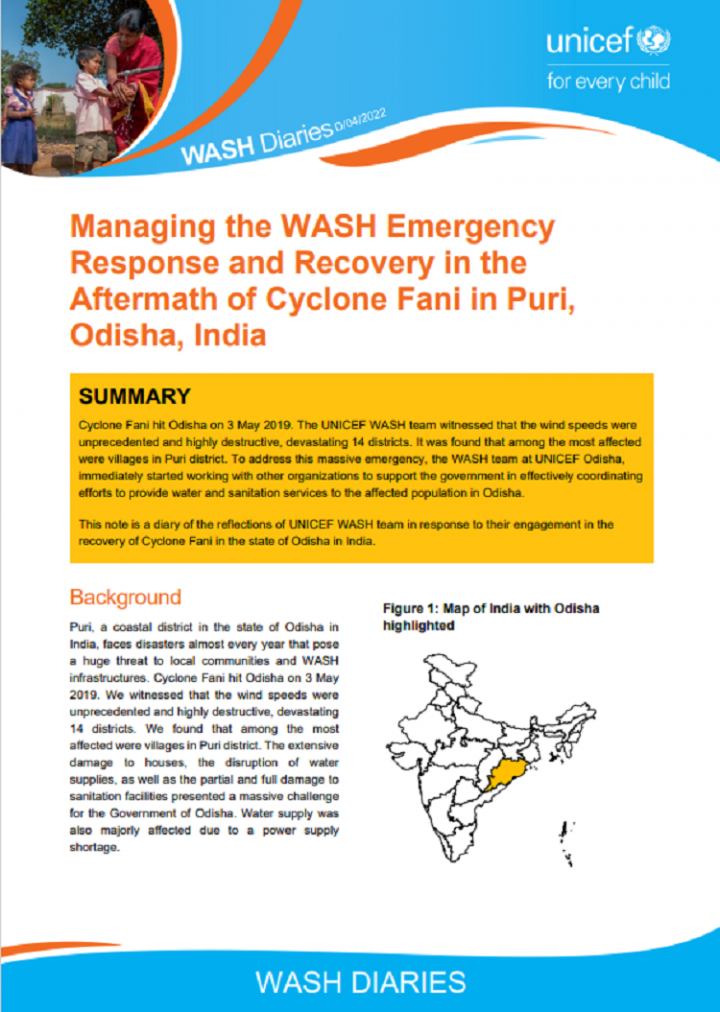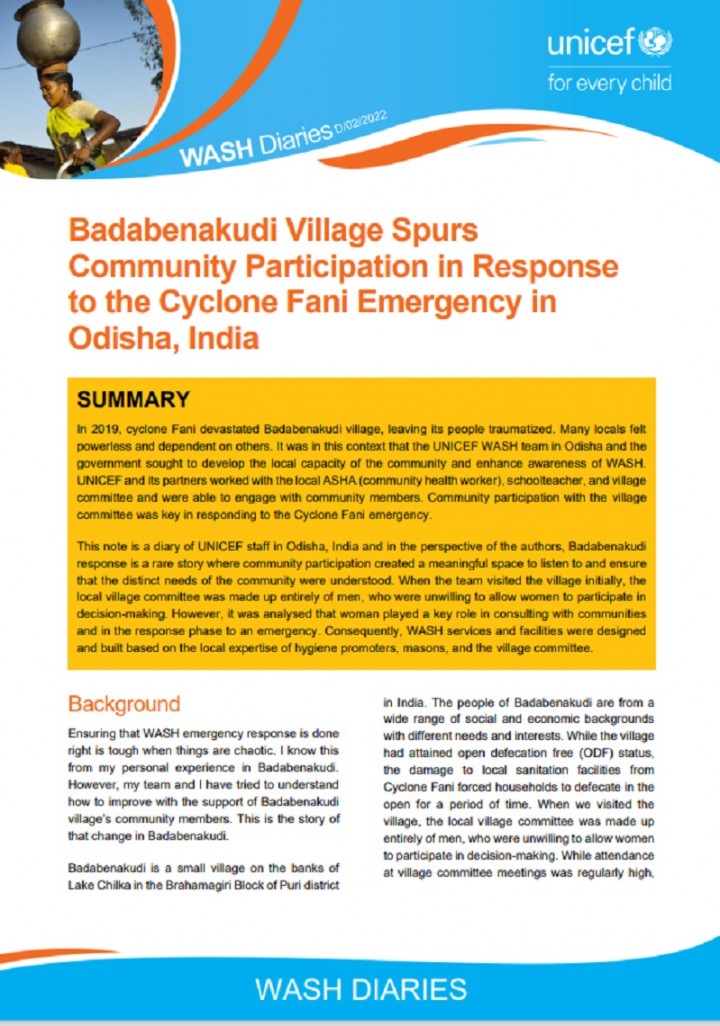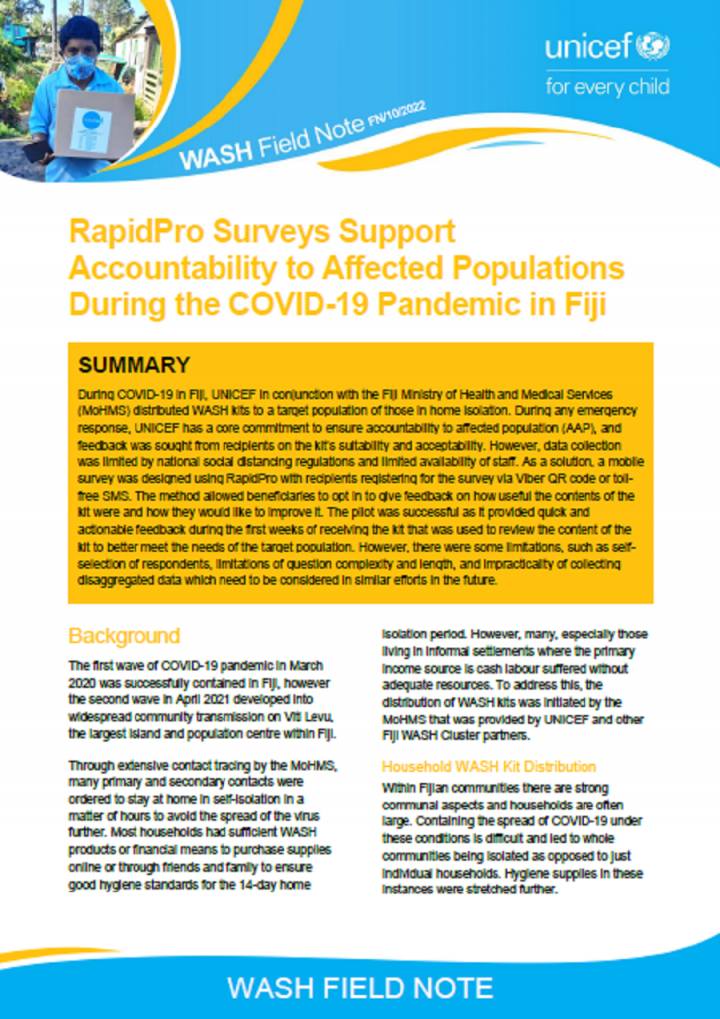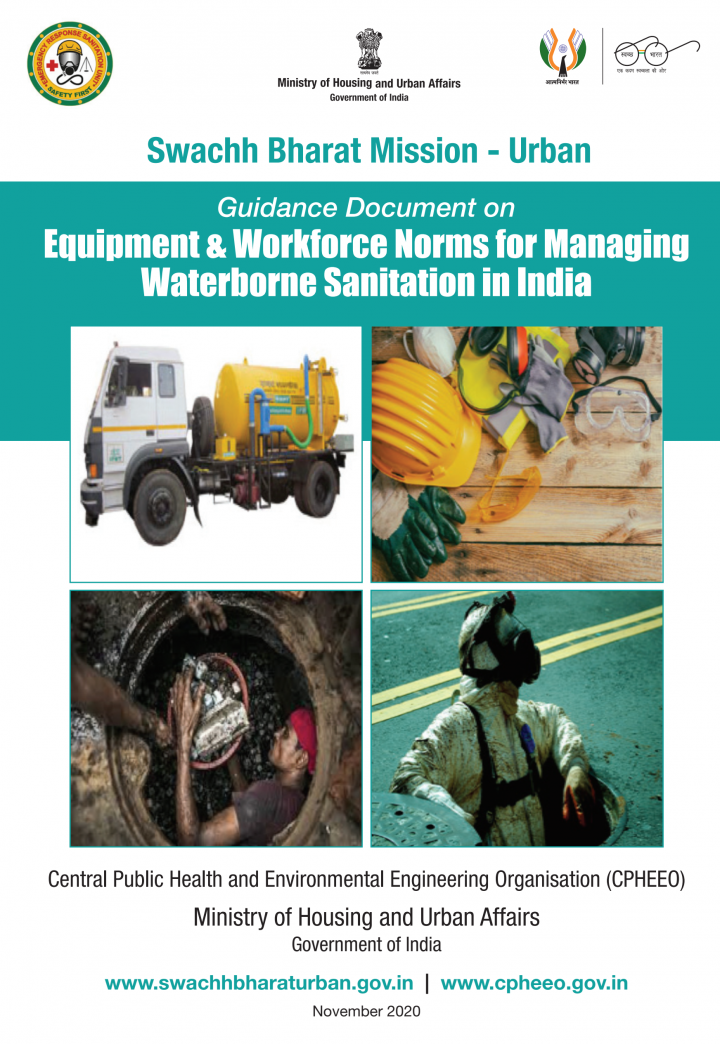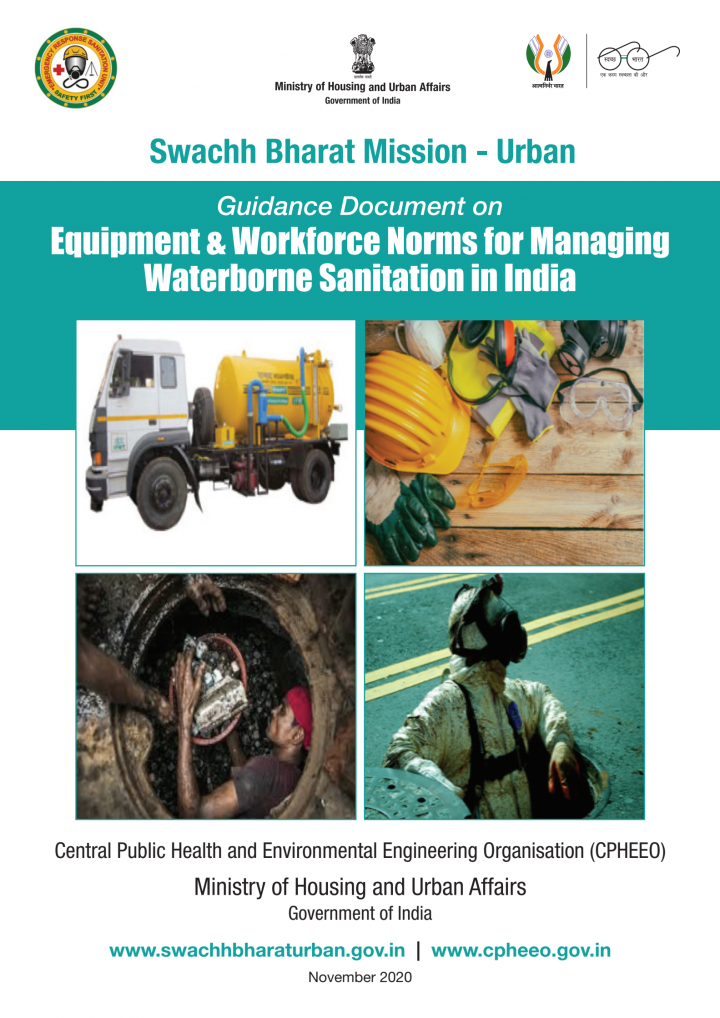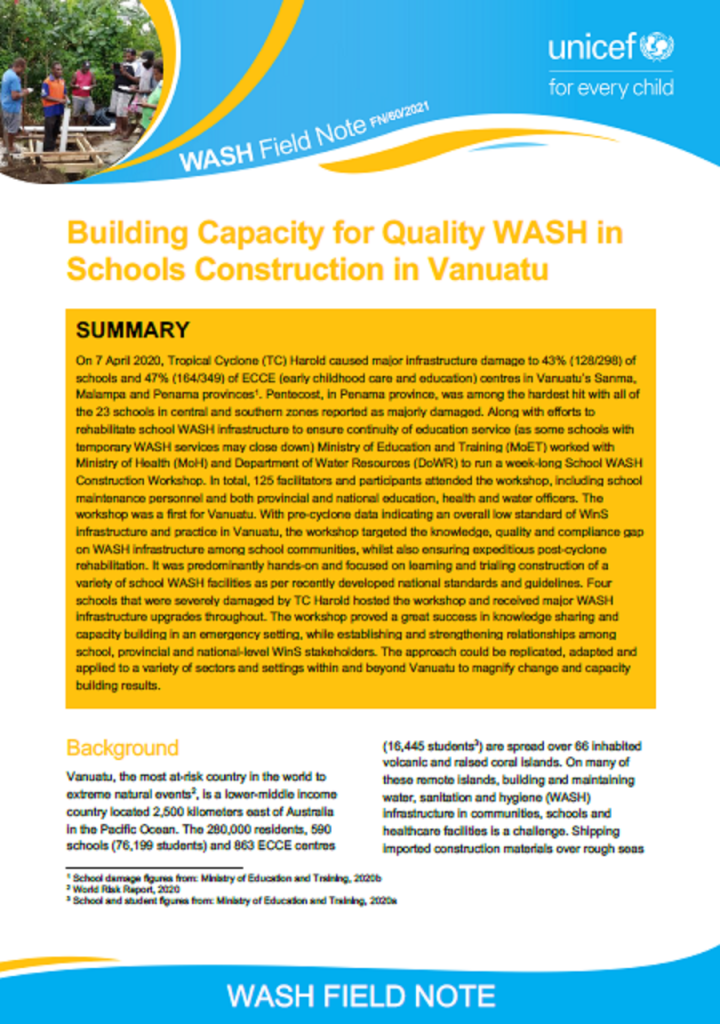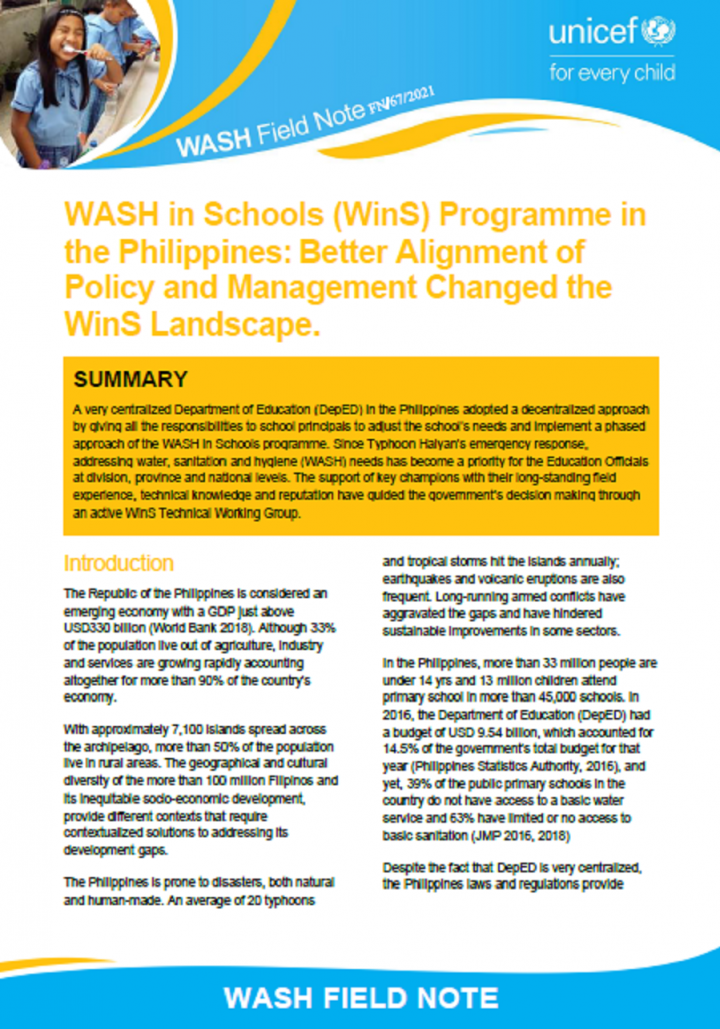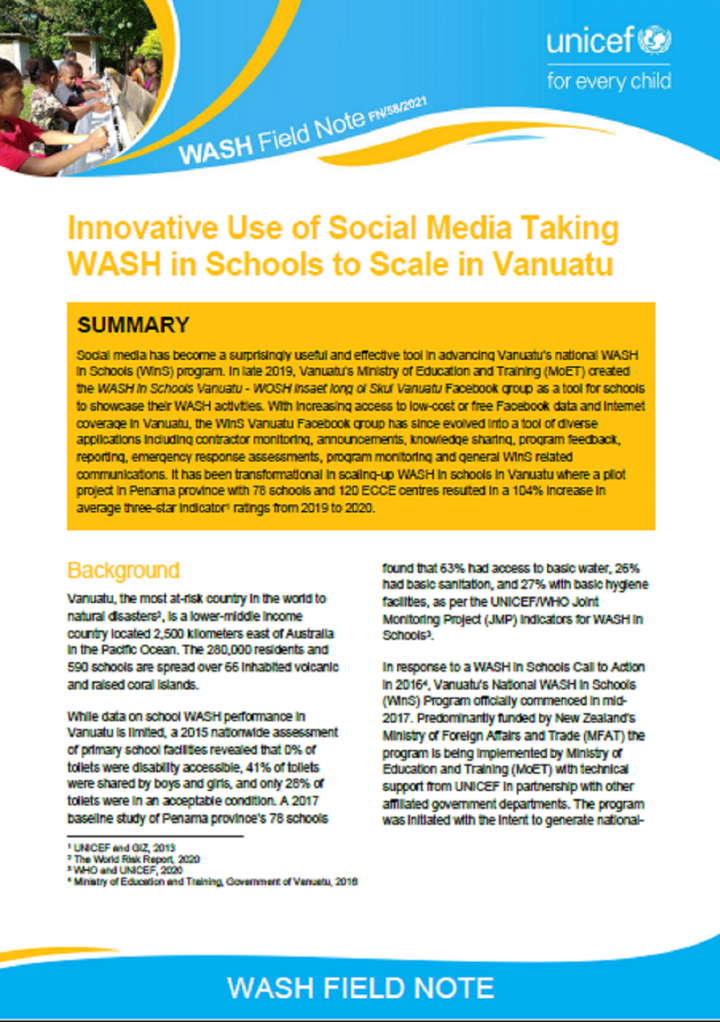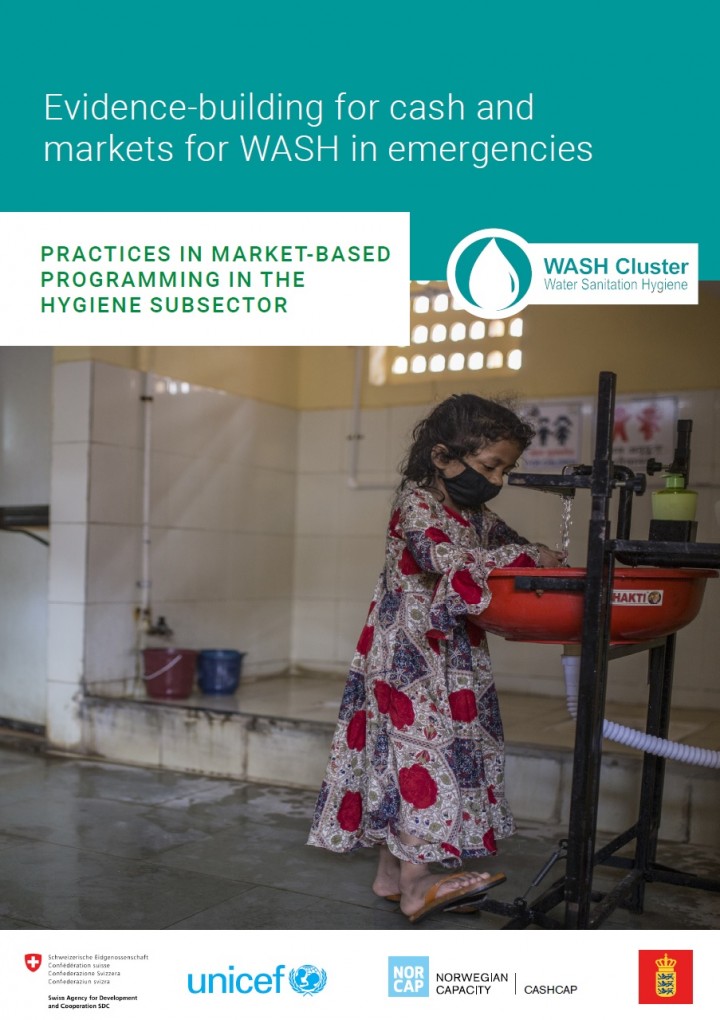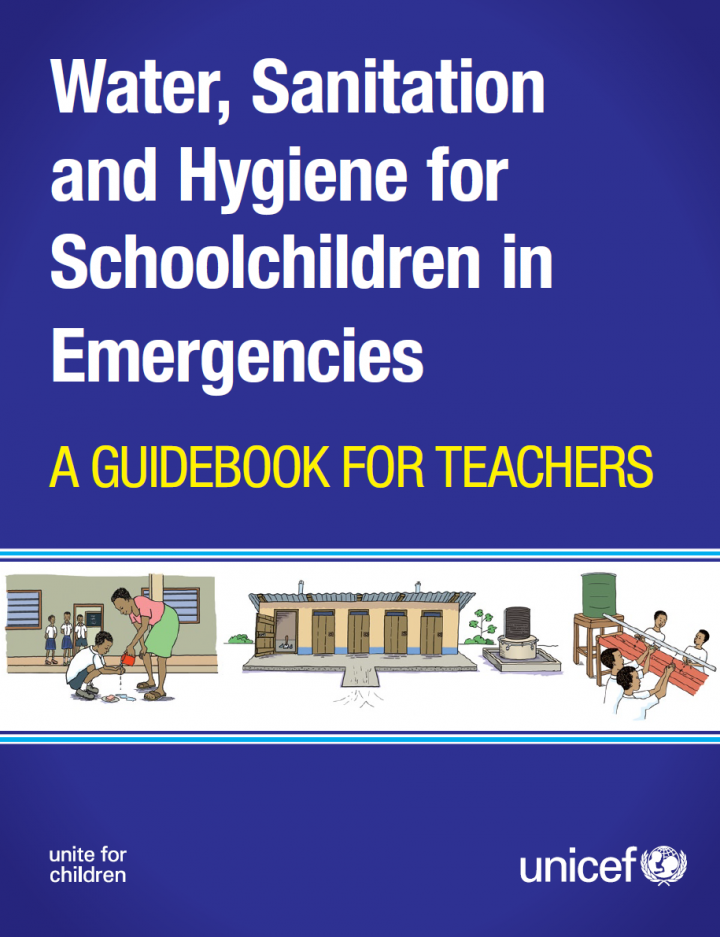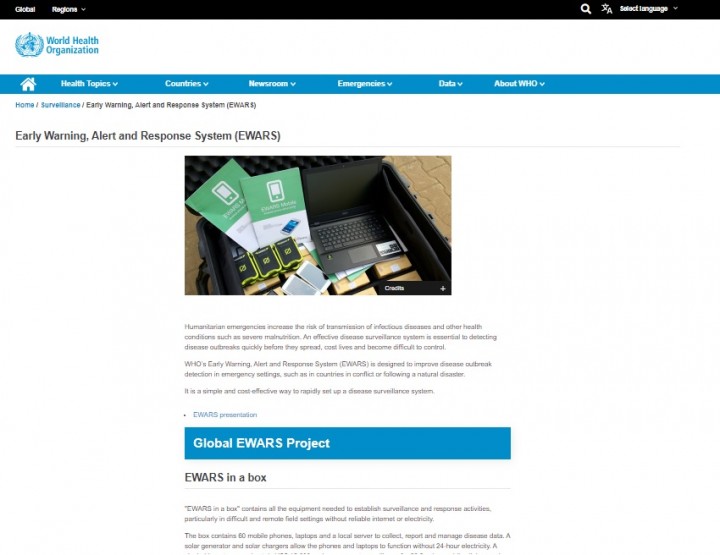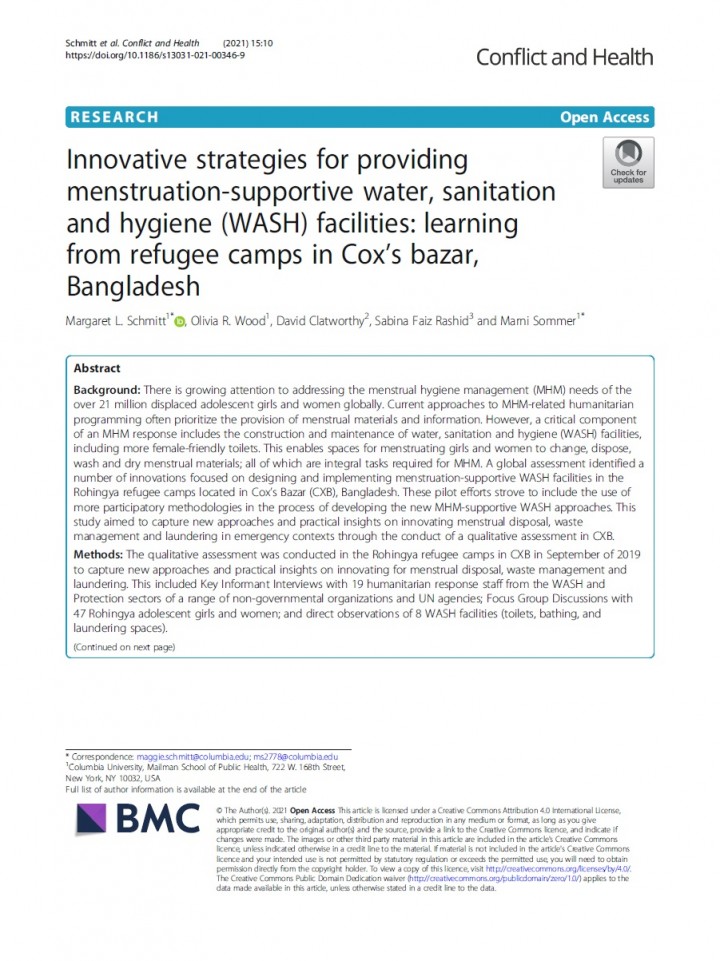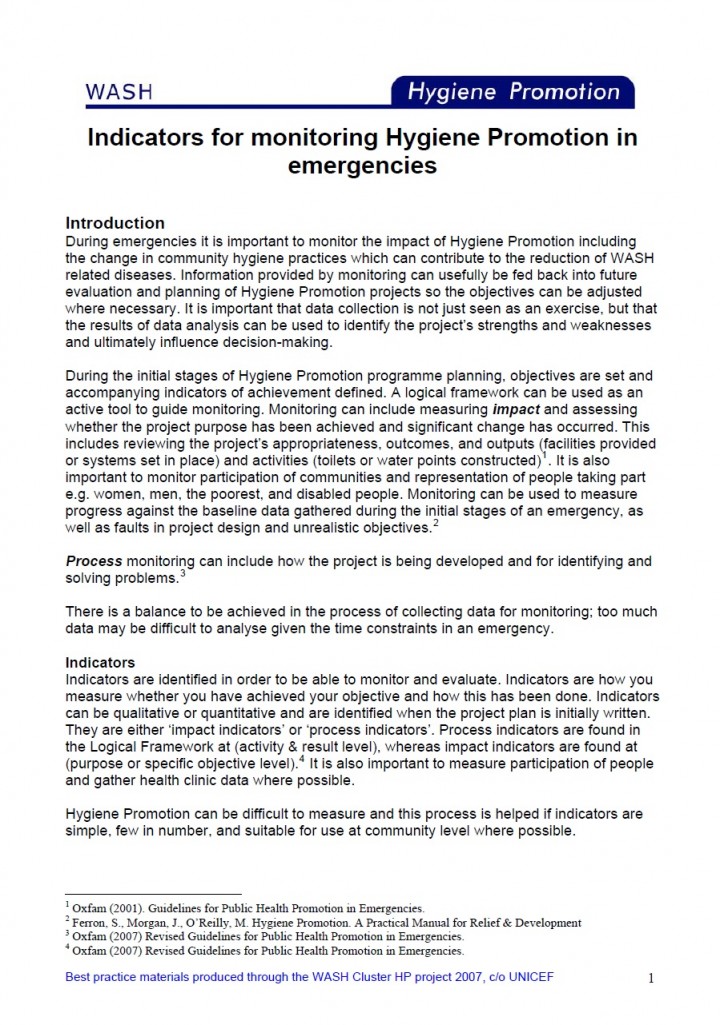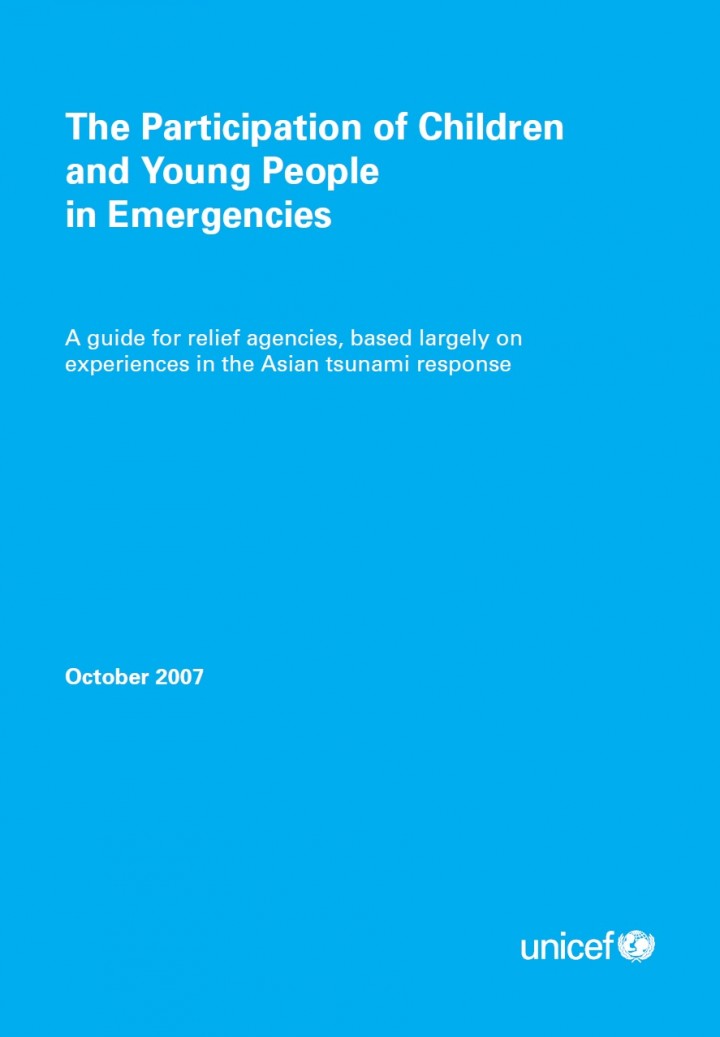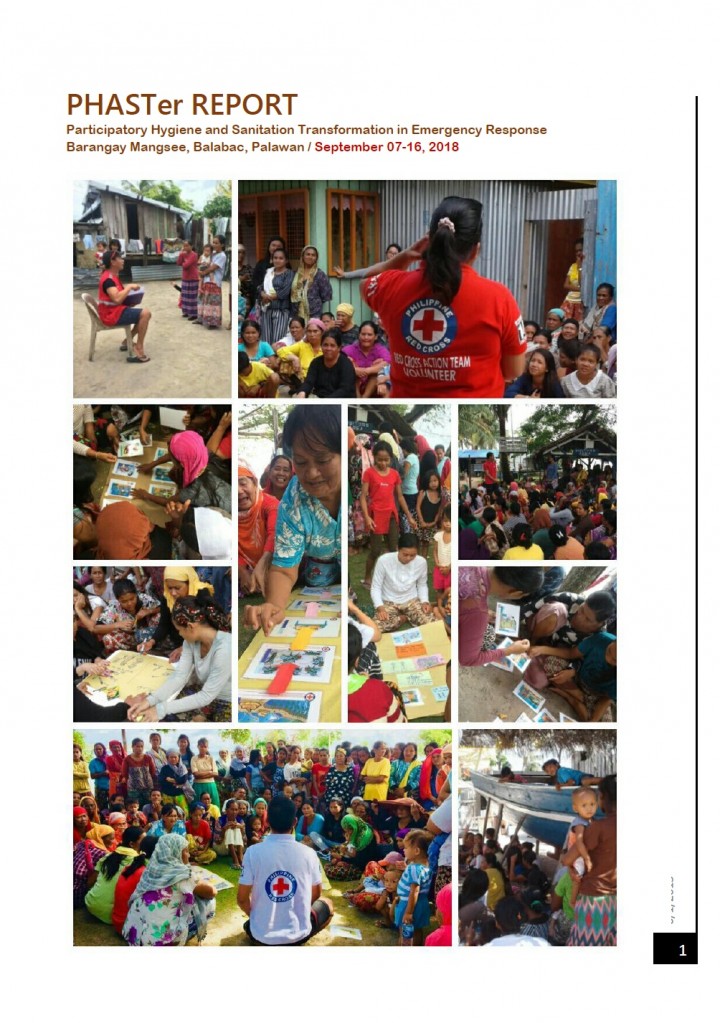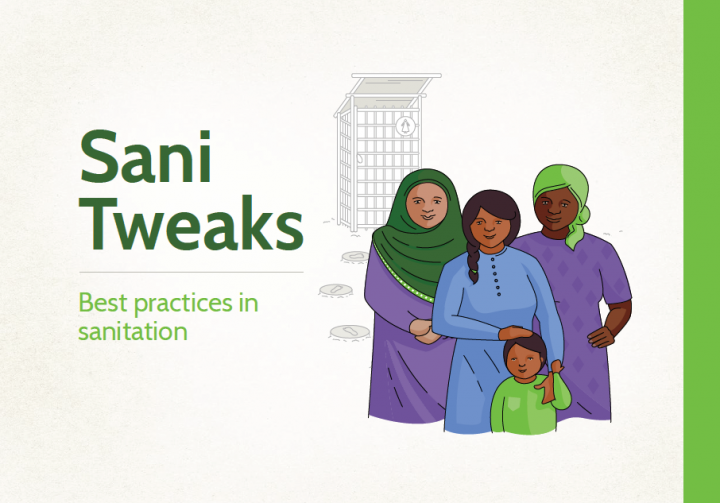Sanitation for Millions (2025) Service Offer: Improve Quality of Care in Health Care Facilities Through Localization of the WASH FIT Approach
This service offer provides guidance for the systemic adaptation, localization, and scaling up of the Water and Sanitation for Health Facility Improvement Tool (WASH FIT), developed by World Health Organization (WHO) and United Nations International Children's Emergency Fund (UNICEF), within a dedicated localized and harmonized partnership approach. It was developed by the global project Sanitation for Millions, implemented by the Deutsche Gesellschaft für Internationale Zusammenarbeit […]
SuSanA (2025) 35th SuSanA Meeting - Presentations, Recordings and further Resources
The 35th SuSanA Meeting took place on 23 August 2025. It was organised by the SuSanA Secretariat with support and contributions from the Global Steering Committee, SuSanA Partners, Members, Working Groups, Regional Chapters, and many others. This page serves as a central collection point for various resources from the meeting, including recordings, presentations, and an overview of the programme. We would like to once again thank all […]
WHO and UNICEF (2024) Water and sanitation interventions to prevent and control mosquito borne disease: focus on emergencies
Climate change, conflict and human displacement are all growing in scale, increasing the spread of mosquito-borne diseases. A number of effective water, sanitation and waste management measures exist and can be implemented to prevent mosquito-borne diseases. This WHO/UNICEF technical note provides practical information for implementing such measures with a focus on emergency contexts.
Water Supply and Sanitation for Refugee Settlements and Host Communities in Northern Uganda (WatSSUP) (2023) Peero Giiri - Water Forever
As the largest refugee hosting country in Africa, Uganda currently hosts more than 1.5 million refugees throughout the country. Since 2017, Uganda has been one of the first countries to pilot the implementation of the Comprehensive Refugee Response Framework (CRRF). The CRRF aims to ease pressure on host countries, like Uganda, enhance refugees’ self-reliance, expand access to third-country solutions, and foster conditions that enable refugees […]
(2022) Managing the WASH Emergency Response and Recovery in the Aftermath of Cyclone Fani
Cyclone Fani hit Odisha on 3 May 2019. The UNICEF WASH team witnessed that the wind speeds were unprecedented and highly destructive, devastating 14 districts. It was found that among the most affected were villages in Puri district. To address this massive emergency, the WASH team at UNICEF Odisha, immediately started working with other organizations to support the government in effectively coordinating efforts to provide […]
UNICEF (2022) Badabenakudi Village Spurs Community Participation in Response to the Cyclone Fani Emergency in Odisha, India
In 2019, cyclone Fani devastated Badabenakudi village, leaving its people traumatized. Many locals felt powerless and dependent on others. It was in this context that the UNICEF WASH team in Odisha and the government sought to develop the local capacity of the community and enhance awareness of WASH. UNICEF and its partners worked with the local ASHA (community health worker), schoolteacher, and village committee and […]
Harford-Cross, T. (2022) RapidPro Surveys Support - Accountability to Affected Populations During the COVID-19 Pandemic in Fiji
During COVID-19 in Fiji, UNICEF in conjunction with the Fiji Ministry of Health and Medical Services (MoHMS) distributed WASH kits to a target population of those in home isolation. During any emergency response, UNICEF has a core commitment to ensure accountability to affected population (AAP), and feedback was sought from recipients on the kit’s suitability and acceptability. However, data collection was limited by national social distancing regulations and limited […]
Central Public Health and Environmental Engineering Organisation (CPHEEO) (2020) Guidance Document on Equipment & Workforce Norms for Managing Waterborne Sanitation in India
This Guidance Document on Equipment & Workforce Norms for Managing Waterborne Sanitation in India is prepared keeping in view the Safai-mitra Suraksha Challenge, 2021. All sanitary structures like sewer and septic tanks which manage sewage are susceptible to getting choked at some point of time due to ingress and settling of solids and require regular cleaning or maintenance. Cleaning of sewer and septic tank sometimes require […]
Central Public Health and Environmental Engineering Organisation (CPHEEO) (2020) Guidance Document on Equipment & Workforce Norms for Managing Waterborne Sanitation in India
This Guidance Document on Equipment & Workforce Norms for Managing Waterborne Sanitation in India is prepared keeping in view the Safai-mitra Suraksha Challenge, 2021. All sanitary structures like sewer and septic tanks which manage sewage are susceptible to getting choked at some point of time due to ingress and settling of solids and require regular cleaning or maintenance. Cleaning of sewer and septic tank sometimes require manual […]
J. Ward, E. Rand (UNICEF Vanuatu) (2022) Building Capacity for Quality WASH in Schools Construction in Vanuatu
On 7 April 2020, Tropical Cyclone (TC) Harold caused major infrastructure damage to 43% (128/298) of schools and 47% (164/349) of ECCE (early childhood care and education) centres in Vanuatu’s Sanma, Malampa and Penama provinces1. Pentecost, in Penama province, was among the hardest hit with all of the 23 schools in central and southern zones reported as majorly damaged. Along with efforts to rehabilitate school WASH infrastructure to ensure […]
J. M. Villaseñor, L. Maule, I. Amongin, S. Gaya, J. Figueras (2022) WASH FIELD NOTE WASH in Schools (WinS) Programme in the Philippines: Better Alignment of Policy and Management Changed the WinS Landscape.
A very centralized Department of Education (DepED) in the Philippines adopted a decentralized approach by giving all the responsibilities to school principals to adjust the school’s needs and implement a phased approach of the WASH in Schools programme. Since Typhoon Haiyan’s emergency response, addressing water, sanitation and hygiene (WASH) needs has become a priority for the Education Officials at division, province and national levels. The […]
J. Ward, E. Rand (UNICEF Vanuatu) (2022) Innovative Use of Social Media Taking WASH in Schools to Scale in Vanuatu
Social media has become a surprisingly useful and effective tool in advancing Vanuatu’s national WASH in Schools (WinS) program. In late 2019, Vanuatu’s Ministry of Education and Training (MoET) created the WASH in Schools Vanuatu - WOSH insaet long ol Skul Vanuatu Facebook group as a tool for schools to showcase their WASH activities. With increasing access to low-cost or free Facebook data and internet […]
Barbiche, J.C., Collins, O. (2020) Evidence-building for Cash and Markets for WASH in Emergencies Practices in Market-Based Programming in the Hygiene Sub-Sector
This report presents an overview of practices related to the use of market support and cash and voucher assistance (CVA) modalities for hygiene in humanitarian crises. These market-based approaches can have a number of advantages, such as improving the efficiency and effectiveness of emergency hygiene response while also supporting the existing local market systems that will continue to deliver hygiene items and services long after […]
Sahin, M. (2011) Water, Sanitation and Hygiene for School Children in Emergencies. A Guidebook for Teachers. UNICEF.
WASH in Schools aims to support the provision of safe drinking water and improved sanitation facilities, and promotes lifelong health for children and their families. Ensuring access to water, sanitation and hygiene (WASH) in every school for every child can be a huge challenge, especially during emergencies. When disaster strikes, education is often disrupted as families become primarily focused on survival. Schools become shelters for […]
WHO (0) Early Warning, Alert and Response Systems (EWARS)
Humanitarian emergencies increase the risk of transmission of infectious diseases and other health conditions such as severe malnutrition. An effective disease surveillance system is essential to detecting disease outbreaks quickly before they spread, cost lives and become difficult to control. WHO’s Early Warning, Alert and Response System (EWARS) is designed to improve disease outbreak detection in emergency settings, such as in countries in conflict or […]
Schmitt, M.L., Wood, O.R., Clatworthy, D., Rashid, S. F., Sommer, M. (2021) Innovative Strategies for Providing Menstruation-Supportive Water, Sanitation and Hygiene (WASH) Facilities: Learning from Refugee Camps in Cox’s Bazar, Bangladesh
There is growing attention to addressing the menstrual hygiene management (MHM) needs of the over 21 million displaced adolescent girls and women globally. Current approaches to MHM-related humanitarian programming often prioritize the provision of menstrual materials and information. However, a critical component of an MHM response includes the construction and maintenance of water, sanitation and hygiene (WASH) facilities, including more female-friendly toilets. This enables spaces […]
UNICEF (2007) Indicators for Monitoring Hygiene Promotion in Emergencies Best Practice Materials Produced Through the WASH Cluster HP Project
During emergencies it is important to monitor the impact of Hygiene Promotion including the change in community hygiene practices which can contribute to the reduction of WASH related diseases. Information provided by monitoring can usefully be fed back into future evaluation and planning of Hygiene Promotion projects so the objectives can be adjusted where necessary. It is important that data collection is not just seen […]
UNICEF East Asia and Pacific Regional Office (2007) The Participation of Young People and Children in Emergencies A Guide for Relief Agencies, Based Largely on Experiences in the Asian Tsunami Response
Introduction Purpose and rationale Children have made significant and valuable contributions in emergency situations. They have taken on roles and responsibilities and they have taken action – including life-saving decisions. They have responded spontaneously and taken part in planned relief and recovery action. This has included them in protecting lives, providing health care, distributing relief, caring for children and adults, and offering a hand in psychosocial support, […]
Philippine Red Cross (2018) PHASTer Report. Participatory Hygiene and Sanitation Transformation in Emergency Response
Participatory Hygiene and Sanitation Transformation in Emergency Response Barangay Mangsee, Balabac, Palawan
Oxfam (2018) Sani Tweaks. Best Practices in Sanitation. Booklet
Studies have shown that agencies are failing to properly consult or collect and act on feedback from the users of the latrines they build, leading many people – especially women and girls – to stop using those latrines as they find them inaccessible, unsuitable and/or unsafe. Consequently, this increases public health risks in emergency situations. To address this, the Oxfam WASH team has developed a series […]
